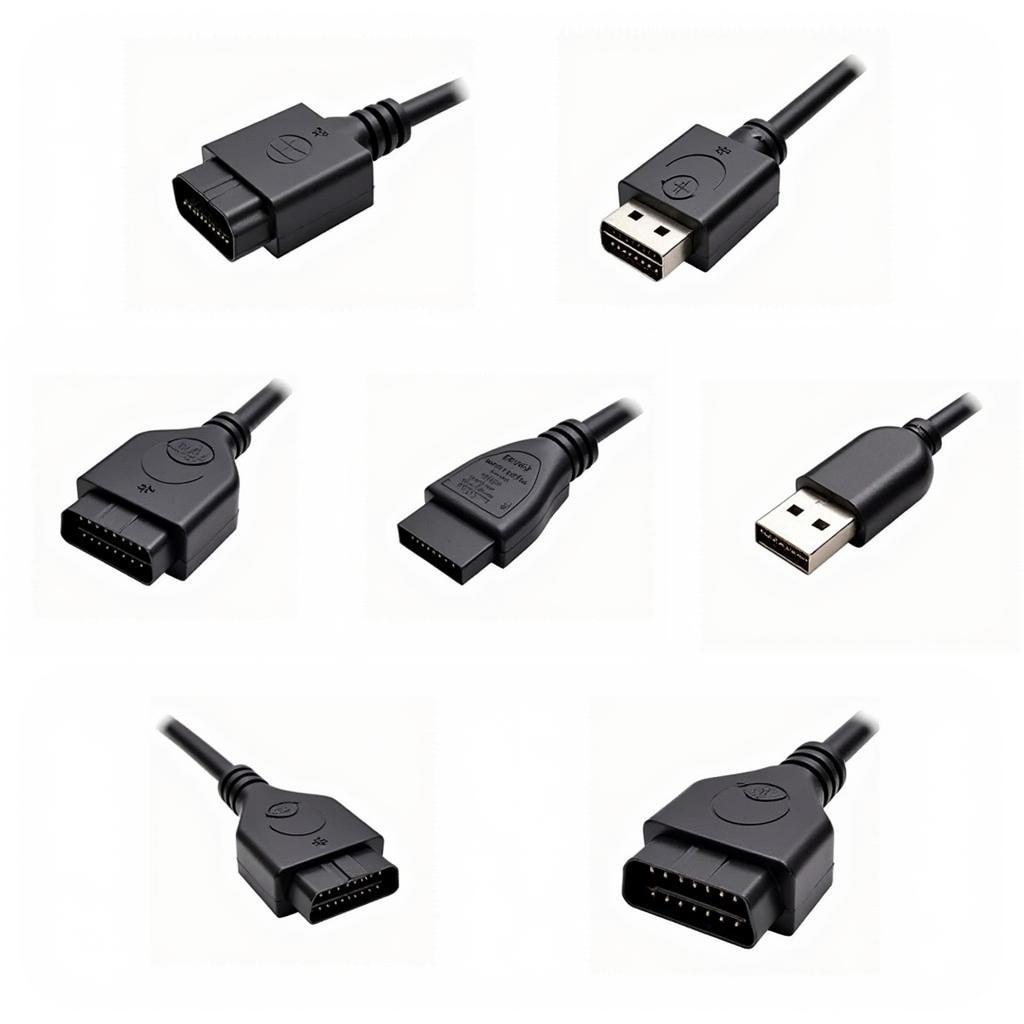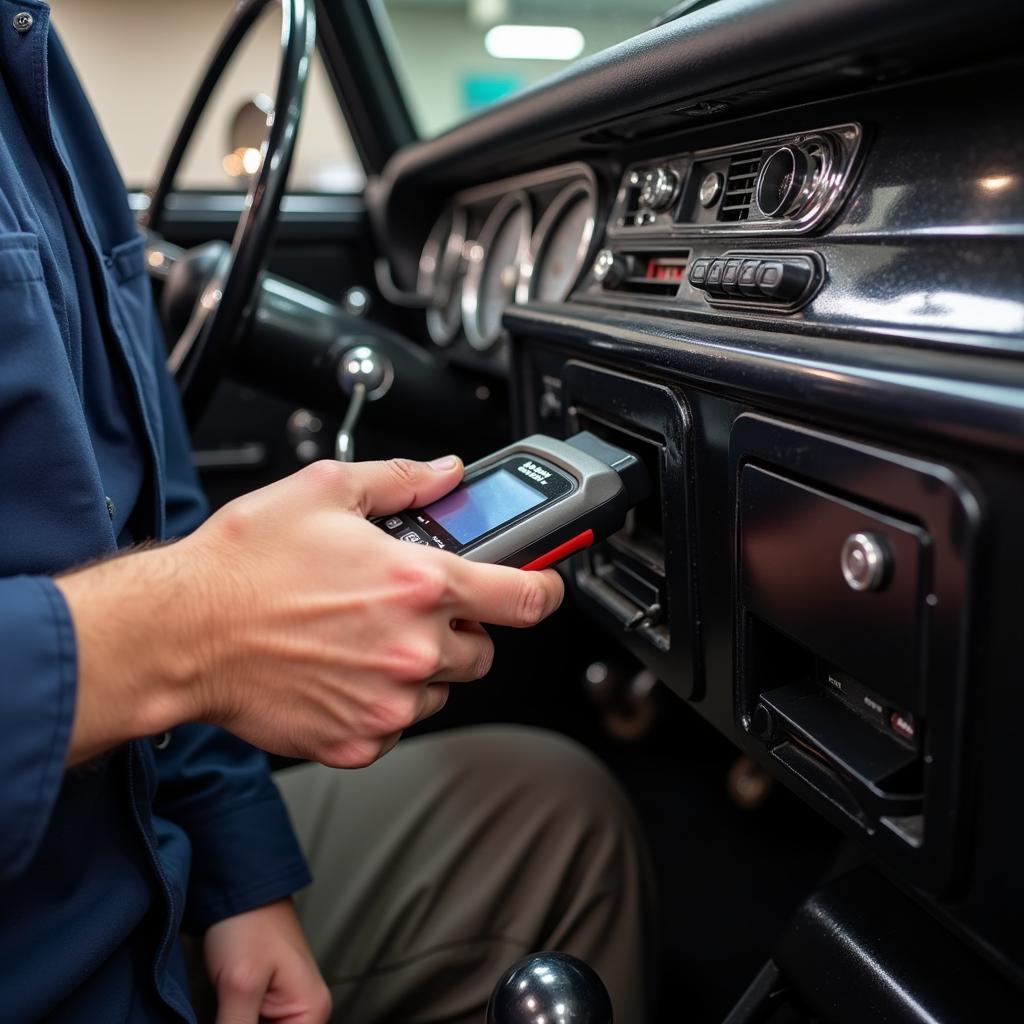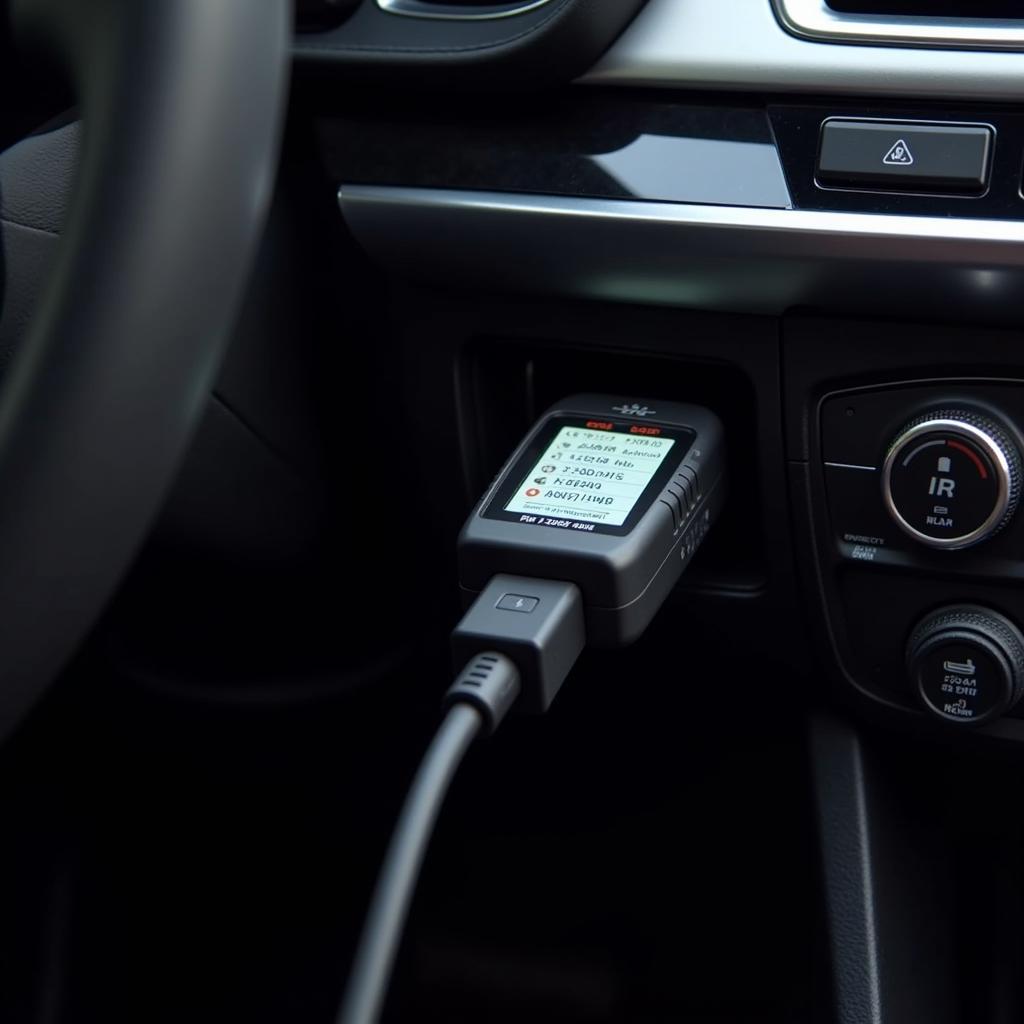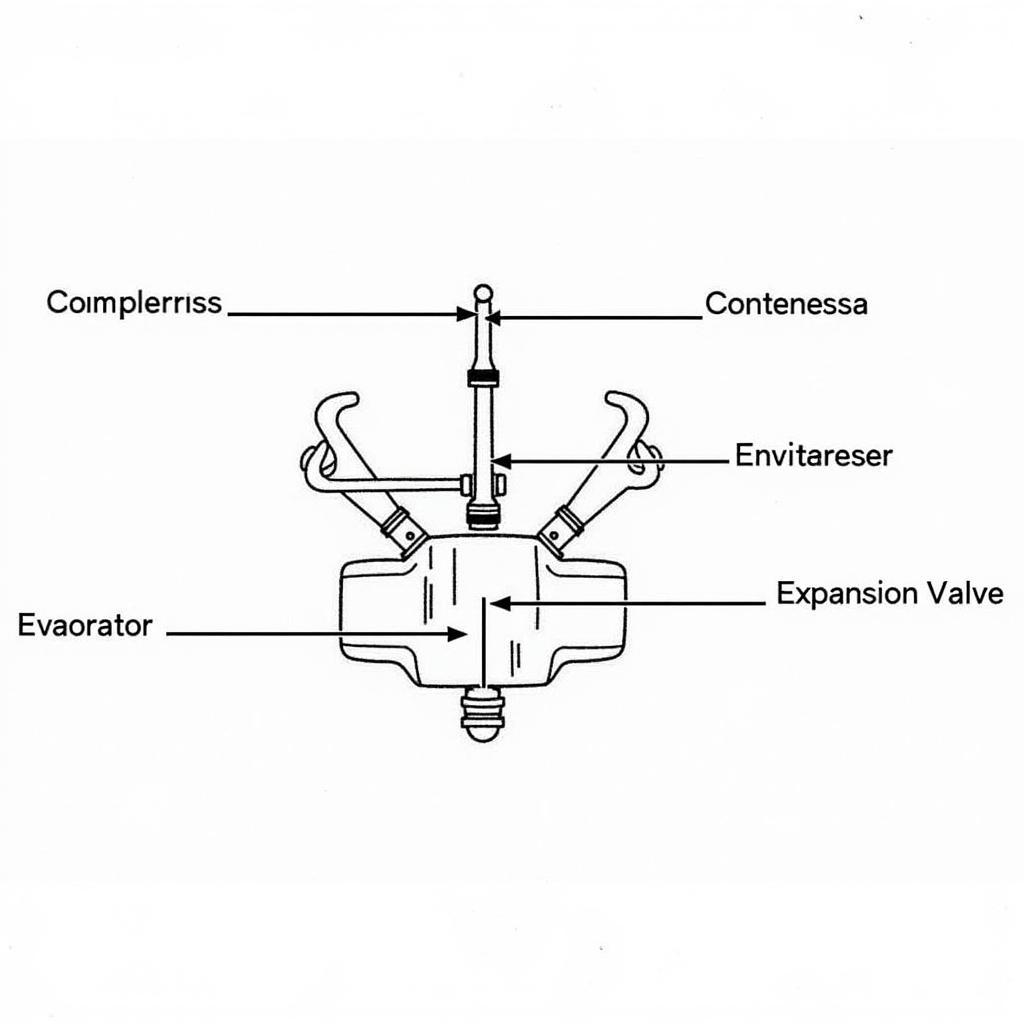Finding an “Obd1 Diagnostic Scan Tool Near Me” is a common search for car owners dealing with pesky check engine lights and vehicle issues. Unlike the more standardized OBD2 systems in newer cars, finding the right OBD1 scanner can be tricky due to the variety of connectors and protocols used by different car manufacturers between 1981 and 1995. This guide will help you navigate the world of OBD1 scanners and get your classic car back on the road.
Understanding OBD1 Systems
Before diving into scan tools, it’s essential to grasp the basics of OBD1 systems. OBD1, short for On-Board Diagnostics 1, was the first generation of onboard diagnostic systems. Unlike their modern counterparts, OBD1 systems were less standardized, with each manufacturer often having unique diagnostic connectors and protocols. This lack of uniformity can make finding a compatible scan tool a bit more challenging.
Why You Might Need an OBD1 Scan Tool
A scan tool is your key to understanding what’s happening under the hood of your OBD1 vehicle. Here are some reasons why you might need one:
- Diagnose Check Engine Lights: Just like with newer cars, the check engine light in your OBD1 vehicle signals a problem. A scan tool will retrieve the specific trouble codes stored in the car’s computer, giving you valuable insight into the issue.
- Read Sensor Data: OBD1 scan tools can access real-time data from various sensors, such as oxygen sensors, throttle position sensors, and coolant temperature sensors. This information can help pinpoint issues that might not trigger a check engine light.
- Resetting the Check Engine Light: After addressing a problem, you’ll need to reset the check engine light. An OBD1 scan tool allows you to clear the codes and turn off the light.
Types of OBD1 Diagnostic Scan Tools
There are several types of OBD1 diagnostic scan tools available, each with its pros and cons:
1. Manufacturer-Specific Scan Tools
As the name suggests, these tools are designed to work with vehicles from a specific manufacturer, such as GM, Ford, or Chrysler. They offer the most in-depth diagnostics for that particular make but are limited in their compatibility with other brands.
2. Multi-Make Scan Tools
If you work on a variety of OBD1 vehicles, a multi-make scan tool is a versatile option. These tools support a wide range of car manufacturers and models, providing a more universal solution.
 OBD1 Scan Tools
OBD1 Scan Tools
3. DIY Code Readers
For basic diagnostics, DIY code readers offer an affordable way to read and clear OBD1 trouble codes. They may not provide advanced features like live data streaming but are sufficient for identifying common issues.
Choosing the Right OBD1 Scan Tool
With several options available, selecting the right OBD1 scan tool depends on your specific needs:
- Vehicle Make and Model: The most crucial factor is ensuring the scan tool is compatible with your car’s make, model, and year. Consult the tool’s documentation or contact the manufacturer to verify compatibility.
- Features: Consider the features you require. Do you need basic code reading and clearing, or are you looking for live data streaming, graphing capabilities, and advanced diagnostics?
- Budget: OBD1 scan tools range in price from budget-friendly code readers to professional-grade tools with extensive features. Set a budget beforehand to narrow down your options.
- User Friendliness: Choose a tool with an intuitive interface and easy-to-understand menus.
Where to Find “OBD1 Diagnostic Scan Tool Near Me”
Now that you have a better understanding of OBD1 scan tools, here’s where to find them:
- Auto Parts Stores: Major auto parts chains like AutoZone, Advance Auto Parts, and O’Reilly Auto Parts usually carry a selection of OBD1 scan tools, including DIY code readers and some multi-make options.
- Online Retailers: Online giants like Amazon and eBay offer a wide variety of OBD1 scan tools from different brands and manufacturers. Be sure to read reviews and check compatibility before purchasing.
- Specialty Tool Suppliers: For professional-grade tools and specialized applications, consider looking at specialty tool suppliers catering to mechanics and automotive professionals.
“Finding a reliable OBD1 scan tool is essential for diagnosing and resolving issues in older vehicles,” says John Smith, a seasoned automotive engineer at [Your Company Name]. “Investing in a quality tool can save you time, money, and frustration in the long run.”
Tips for Using an OBD1 Diagnostic Scan Tool
Once you have your OBD1 scan tool, here are some tips for using it effectively:
- Consult Your Vehicle’s Repair Manual: Always refer to your vehicle’s repair manual for specific connector locations and diagnostic procedures.
- Locate the Diagnostic Connector: The OBD1 diagnostic connector is typically located under the dashboard on the driver’s side, but its exact location can vary.
- Connect the Scan Tool: Turn the ignition on but do not start the engine. Connect the scan tool to the diagnostic connector, ensuring a secure connection.
- Read and Interpret Codes: Follow the on-screen prompts to retrieve any stored trouble codes. Note down the codes and their descriptions.
- Clear Codes: After addressing the issue, use the scan tool to clear the trouble codes and reset the check engine light.
- Consult Resources: If you encounter unfamiliar codes, consult online resources, repair manuals, or seek advice from a qualified mechanic.
 Mechanic Using OBD1 Scanner on Classic Car
Mechanic Using OBD1 Scanner on Classic Car
Conclusion
Finding the right “OBD1 diagnostic scan tool near me” is crucial for keeping your classic car running smoothly. By understanding the different types of tools available, considering your needs, and knowing where to look, you can confidently choose the best option for diagnosing and resolving any issues that arise. If you need expert assistance with your vehicle diagnostics or require professional automotive tools, don’t hesitate to contact ScanToolUS at +1 (641) 206-8880. Our team of experienced technicians is here to help at our office located at 1615 S Laramie Ave, Cicero, IL 60804, USA.



Pingback: How to Use an OBD2 Diagnostic Tool: A Comprehensive Guide - Car Scan Tool